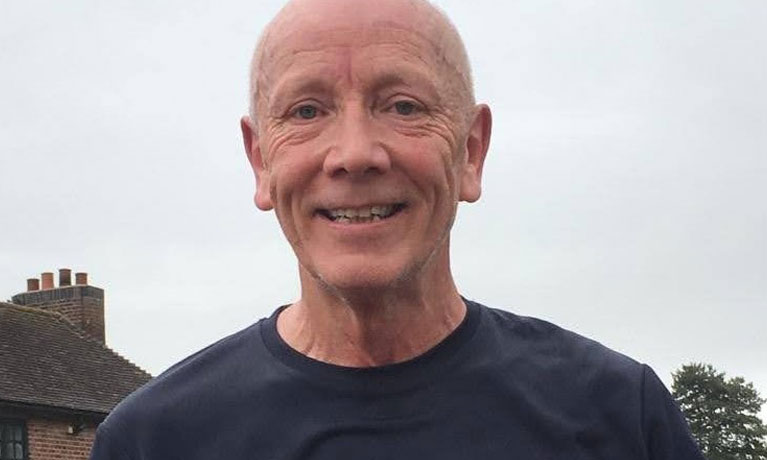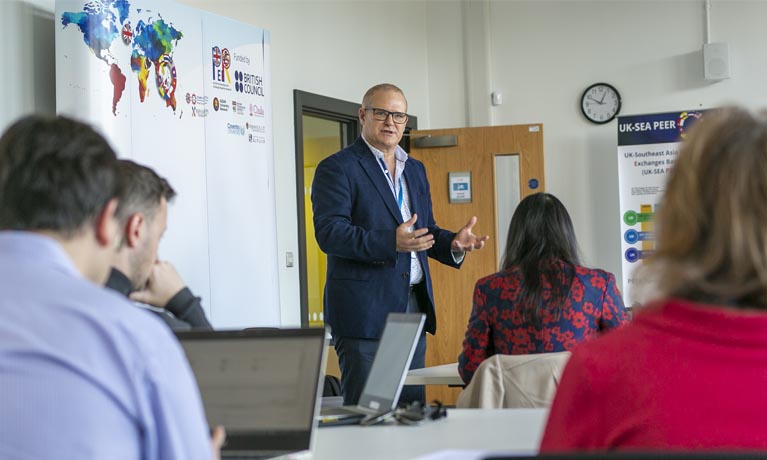By Steve Raven
Steve Raven, Researcher in Critical Theory, Social Justice and Education at the Centre for Global Learning, explores his journey to understand his mental health needs in the face of career challenges and a diagnosis of dyslexia.
“My health story begins with a career change. After a successful entrepreneurial and business career, I wanted to try to do something to contribute to a more socially just society. A series of personal reflections on being a white British male had led me to see that my commercial career and earlier experiences as a physical education teacher no longer reconciled with what was truly important to me.
I sold my business in 2012, and in 2013 I began teaching Human Resource Management imparting, from my experiences as a successful business manager, that managing people with trust and empathy is more important than profit, and in the longer-term rewards everyone.
I could have ‘retired’, but I felt driven to contribute a positive change to address the discrimination in our society, which I had seen in my career and was continuing to witness in the form of institutional racism.
My anxiety around this time began to grow, turning into significant stress, situational stress and then a diagnosis of post-traumatic stress disorder, forcing me into a period of sick leave. As a former athlete with a 72kg body weight, this stress took me at its height to 94kg. At the time I was also unaware that undiagnosed dyslexia was also affecting my mental health.
I registered for a PhD in 2018 with the University of Worcester, with a director of studies extremely well regarded in sociology and its decolonising. It was they who recognised I wrote well after I had developed a visualisation of the subject and, following a discussion over the number of iterations I had to complete before a document was readable, I finally had the confidence to refer myself to the dyslexia assessment process. The process itself was useful for improving my mental health, but the diagnosis has been emancipating for all kinds of reasons. I now know that I “see in pictures” and that the translation into words needs nurturing – and all the ideas and innovations I have floating in my head are just as valid and worth pursuing as anyone else’s.
My journey has led me to my mission to research the inequality and inequity of education, alongside a portfolio of research into the centrality of education for developing footballers. My motivation is to shed light on and develop research with a purpose by highlighting the operationalising of whiteness, especially in sports spaces.
The more I explore and use tools to express my thinking the better my mental health is maintained. Physical exercise, combined with the ongoing goal of trying to understand myself and my mental health needs, are key to my experiences – but I understand everyone is different.
More recently, the COVID-19 pandemic turned out to be my mental health personal assistant. I used the two hours a day I saved on travel during lockdown to first walk, then run, then cycle, seven days a week for the rest of 2020. Physically and mentally, this has been the release and reflective thinking time I have needed. While I plan to swim 1.9km, cycle 90.3km and run 21.1 km this summer as part of my regime to address my mental health issues, I realise this is the result of the privilege I am able to bring to the situation.
My message here is that everyone has the power to influence and impact the lives of others. A lot of what we know is ingrained in us before we can even walk and talk. Mental health issues are often society-caused; the way society is organised creates stigma, the platform on which mental health festers.
We need to be more compassionate. A caring, empathetic community can support and grow every individual; we do not need to castigate or lump pressure on people – we can create a much better, healthier society by sharing how and what impacts us. Poor mental health is such a prevalent issue amongst many Black people, one reason being the daily pressures and stress caused by microaggressions that suppress and exclude people from going about everyday activities. It is important that we learn how our actions, assumptions, and behaviours impact on the lives of others.
It took me 40 years to face up to my dyslexia because of stigma and not understanding that I had other options. I cannot advocate that exercise will help everyone – that is my choice – but seeking help and challenging the status quo is something we can all do.”
Find out more about Men’s Health Week (14-20 June) and explore a range of useful articles from the Men’s Health Forum.




Comments are disabled